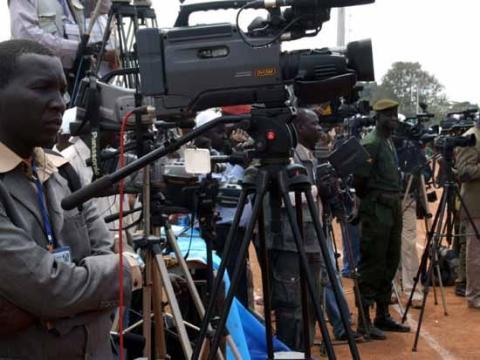Government pushes South Sudan journalists into self-censorship
Submitted by fkakooza on

Government’s hostility towards the media has forced many independent media houses in South Sudan to embrace self- censorship as a tool for safety. The government in South Sudan controls the media and this threatens the independence of journalists and media houses. The iron hand from the security poisoned the working environment for journalists in the country, feeding the public on unbalanced news including stories on government policies, as William Dhieu, head of the Communication Studies department at the University of Juba explains.
“Intimidation and violent attacks on journalists are becoming the order of the day. Most of the journalists have been forced to flee their country and some have abandoned the profession, the few practicing journalists are exercising self-censorship,” he says.According to Charles Wote, a journalist at Eye Radio, over the last decade, a number of journalists who have failed to practice self-censorship have faced the wrath of the government. “The government fear media criticism and as a result, self-censorship is the only way to operate in this environment. Most of the journalists who have continued to run stories that are critical of government actions have faced arbitrary detention, torture and even death in circumstances where they don’t operate (sic) self-censorship,” Wote explains.
Currently, South Sudan has a number of unresolved cases of murder against journalists since September 2011. Consequently, the future of the journalism profession is in shambles. “Journalism is currently seen as a death sentence and some parents advise their children against joining it. Journalists migrated to either government offices as public relations officers or taken (sic) up humanitarian jobs and the few [remaining ones] are running into self-censorship, the number of students joining the profession declines day by day and I am afraid fake news and disinformation will take over,” Dhieu said.
Some of the issues that journalists fear to cover include events at the national parliament.“In 2018, we vowed never to cover any event at parliament after most of our fellow journalists were detained by the national security forces while covering a press conference at the National Parliament in Juba that lamented on the challenges facing the MPs in Juba. Dhieu holds that a change in the mindset of the government about the roles of the press in the development and democratic process is the only way press freedom can be attained in South Sudan.
- 205 reads
